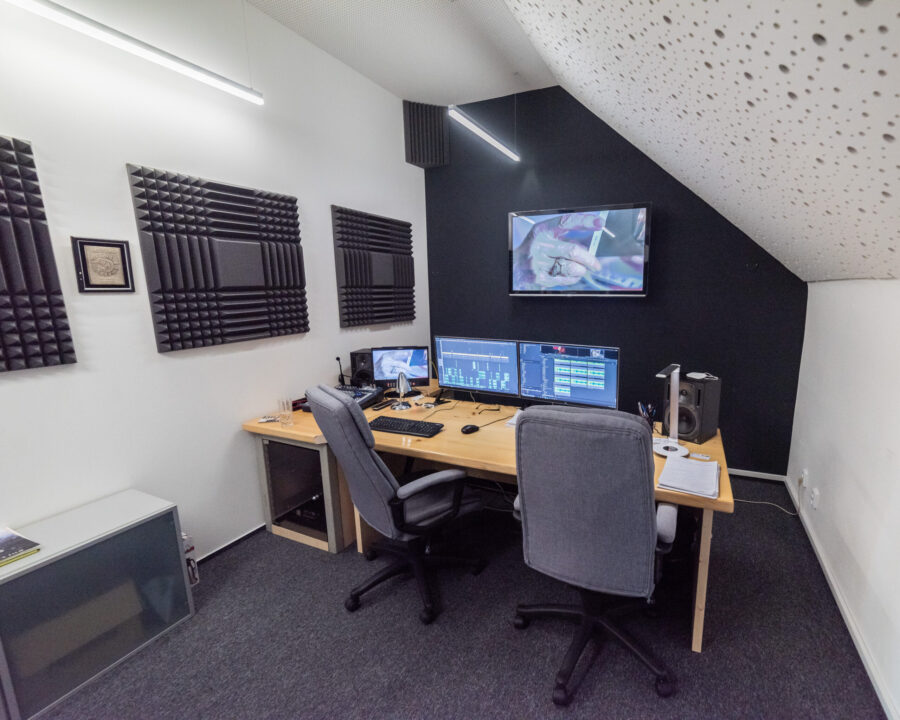- Discover
- Courses
- Meet & Connect
- Admissions & Finances
- Contact Us
Čeština
Our 1 Year Postproduction Course is hands-on, full-time, suitable also for beginners with no experience and taught on our campus in Prague, the Czech Republic. The program ends with qualification BTEC Level 4 HNC in Creative Media Production (Film) which is equivalent to the first year of bachelor’s study. After completing this one-year program, you can seamlessly transition into our 1 Year Advanced Course to obtain BTEC Level 5 HND Diploma. This study program consists of two semesters and will teach you essentials of professional filmmaking and post-production techniques. It includes internship on a film set, every week post-production practising on short films as well as editing up to 20 festival-worthy films shot on high-quality equipment (RED Gemini, RED Dragon, Alexa Amira or Sony F55) by our classmates. You will be required to learn general filmmaking to make you understand the entire process from pre-production to post-production, which is crucial for kick starting your career in the film industry. The emphasis on post-production specialisation is given mostly during practical workshops and shootings.

During the course, you will practice your editing skills on up to 20 short films or scenes of different styles, create industry- standard showreel and present it to the panel of film professionals in a public cinema.

Small class sizes means more time with tutors and individual guidance on your projects. Our teachers are actively involved in the film industry and can offer tips on the latest trends in filmmaking.

You will edit your own 2 festival-worthy films shot on the most popular cinema cameras such as Red Gemini, Alexa Amira or Sony F55. For postproduction you will be using software Da Vinci Resolve.

You will get a chance to take part in filmmaking internship on a professional film set. The internship will grow your network of all-important contacts and set yourself apart in a very competitive career field.
During the study you will invest most of the time practising post-production on up to 20 short films. You will get access to our school post-production station. The films you will be working on will be shot on high-end filmmaking equipment at the value of more than 90 000 USD and with help of on-site located green screen and lighting studio. Through guidance of your tutors, you will practise post-production on the same level as a post-production studios.

Below you can see the basic topics which you will complete on the course. You will turn into practice all knowledge acquired in the classroom. During practical exercises, you will equip yourself with key skills needed to edit festival-worthy films of high production value and create your own industry-standard showreel. The curriculum of the 1 Year Post-production Course is identical to the first year of the Bachelor in Filmmaking Transfer Program.
Click one of our contacts below to chat on WhatsApp